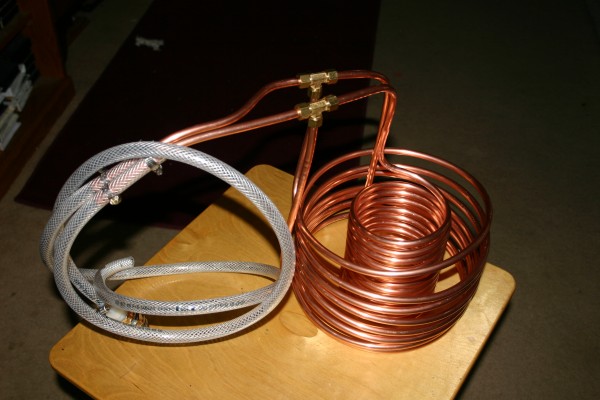I have brewed a few extract batches of different IPAs with varying but somewhat common and disappointing results. Most of them have the same off flavors, most of them do not have nearly the same hop flavor or aroma as a store bought IPA, and they dont seem to be as bitter as I expect. I will try some new tricks with my next batch which is an Austin HBS American IPA-I.
I will be doing a full boil for the first time, I am using all DME, I switched to a stainless pot (never really trusted aluminum even though most people say it is no problem) I am using all distilled or R.O. water, and I will add a small amount of gypsum to the boil.
I do have a couple of concerns and question regarding excess tannin extraction and steeping specialty grains with base grains added. The grains in the recipe are 8oz 2-row malt, 4oz Special B Malt, and 1lb Crystal 60L Malt. These grains have all been crushed and mixed together in the same bag. I have steeped specialty grains before at 155* for 30 mins or so, but this has the base grain added. I thought base grains needed to steep at 155* and then be rinsed with 170* water. Am I wrong to think that proper conversion of the base grain wont happen if I only stay at 155*? And if I go ahead and rinse with 170* water wont I extract unwanted tannins from the specialty grains? The instructions call for 25 minutes at 155*.
This brings up a second question. I have read in one of these posts that Chris Colby mentioned one of the most common off flavors in extract brewing is excess tannin extraction, he suggests steeping the specialty grains in a weak wort of 1010, steeping in campden treated water, or treating the steeping water with 5.2 PH tablets. I know it sounds like overkill, but I have yet to brew a great IPA and would like to try one or all of these suggestions. Any tips or ideas on which (or all?) of these I should try? Is this more complicated now that I am steeping some base grain with my specialty grains?
I will be doing a full boil for the first time, I am using all DME, I switched to a stainless pot (never really trusted aluminum even though most people say it is no problem) I am using all distilled or R.O. water, and I will add a small amount of gypsum to the boil.
I do have a couple of concerns and question regarding excess tannin extraction and steeping specialty grains with base grains added. The grains in the recipe are 8oz 2-row malt, 4oz Special B Malt, and 1lb Crystal 60L Malt. These grains have all been crushed and mixed together in the same bag. I have steeped specialty grains before at 155* for 30 mins or so, but this has the base grain added. I thought base grains needed to steep at 155* and then be rinsed with 170* water. Am I wrong to think that proper conversion of the base grain wont happen if I only stay at 155*? And if I go ahead and rinse with 170* water wont I extract unwanted tannins from the specialty grains? The instructions call for 25 minutes at 155*.
This brings up a second question. I have read in one of these posts that Chris Colby mentioned one of the most common off flavors in extract brewing is excess tannin extraction, he suggests steeping the specialty grains in a weak wort of 1010, steeping in campden treated water, or treating the steeping water with 5.2 PH tablets. I know it sounds like overkill, but I have yet to brew a great IPA and would like to try one or all of these suggestions. Any tips or ideas on which (or all?) of these I should try? Is this more complicated now that I am steeping some base grain with my specialty grains?








































![Craft A Brew - Safale S-04 Dry Yeast - Fermentis - English Ale Dry Yeast - For English and American Ales and Hard Apple Ciders - Ingredients for Home Brewing - Beer Making Supplies - [1 Pack]](https://m.media-amazon.com/images/I/41fVGNh6JfL._SL500_.jpg)


















